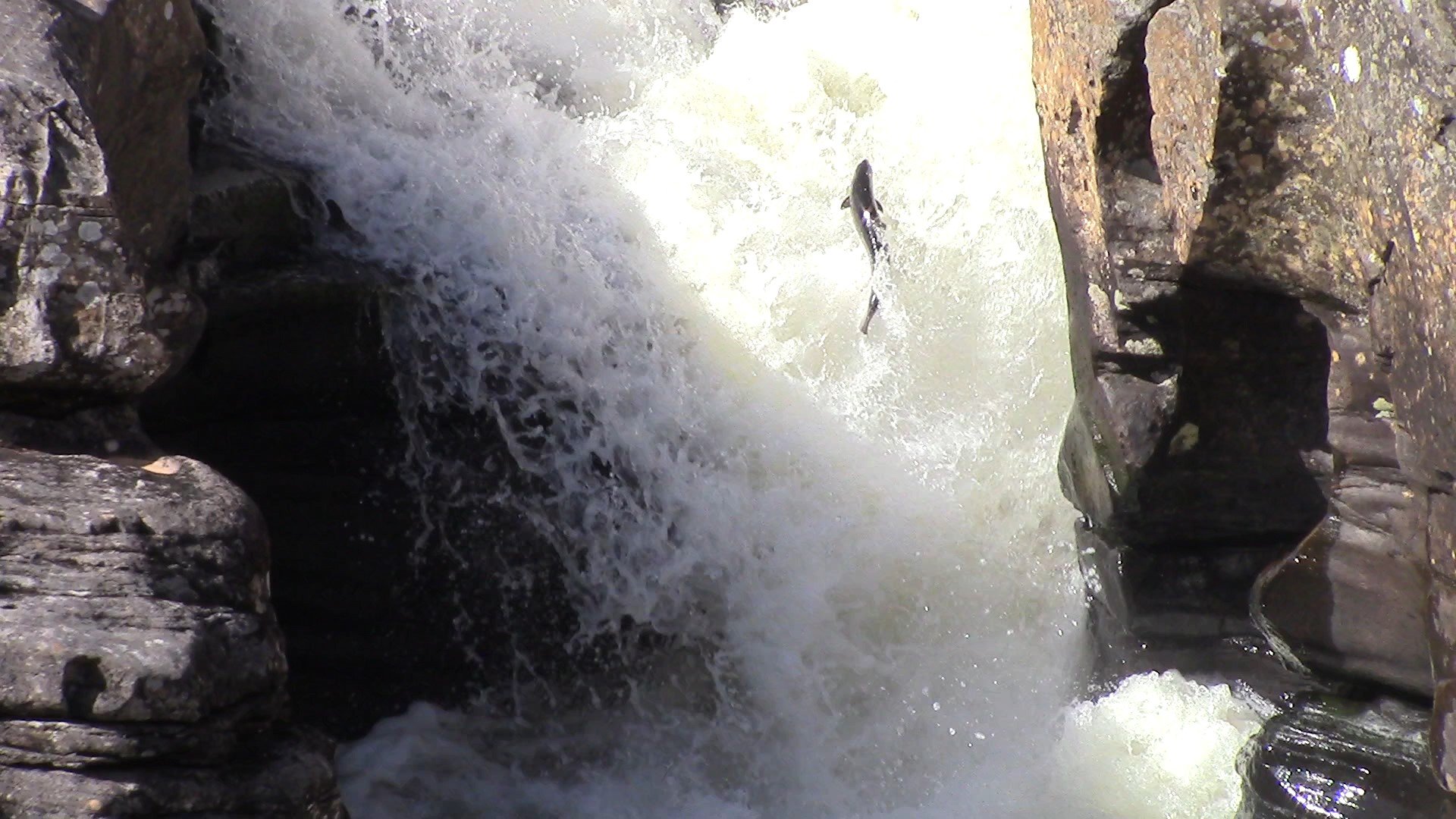World Wildlife Day, 3rd March 2022
Today, 3rd March, marks World Wildlife Day and this year the theme is “Recovering Key Species for Ecosystem Restoration”. The day intends to drive the debate towards the imperative need to reverse the fate of the most critically endangered species, and to support the restoration of their habitats and ecosystems. This is a poignant theme for the Missing Salmon Alliance.
Image: Chris Conroy
The Missing Salmon Alliance recognise, in full, that our iconic wild salmon are on a path to extinction. Wild salmon have occupied earth’s rivers and oceans for millions of years. For countless generations they have sustained human communities and cultures around the world. However, climate change and unsustainable development now threaten the very existence of these resilient species and the massive benefits they provide to people and ecosystems.
Few species traverse our planet like wild salmon. Born in the headwaters of cold-water river systems, they grow from egg to smolt in freshwater before starting a migration that is one of the great natural wonders of the world.
Through estuaries, coastal zones, and then out into the ocean, they migrate thousands of miles in search of food. After feeding and growing to maturity at sea, salmon navigate back to their home rivers to reproduce, often in the same riffle or pool in which they hatched.
Salmon are keystone species—they keep whole ecosystems functioning. Their extraordinary range make salmon a perfect barometer of the health of our oceans and rivers. Put simply, if all is well with our salmon, all is well with our planet.
There are many factors negatively affecting the fate of wild salmon. Climate change is just one of them. Changing sea temperatures and currents are affecting their marine food sources. Hot, dry summers and other extreme weather events are making freshwater spawning and rearing habitat less hospitable. Salmon are losing the clean cold water that is fundamental to survival—for them and so many other species.
The reasons for the catastrophic decline of wild salmon are complex, but The Missing Salmon Alliance urges the Scottish and UK Governments to act urgently to help save the species from extinction. We call for decisive action and crucial intervention to avert one of the most worrying examples of climate-related biodiversity loss on our doorstep. Some of these measures include the large-scale planting of native trees next to rivers, the removal of dams and other barriers to migration, and improved protocols for industries like agriculture and forestry.
The most important outcome of all this work is further protection for clean, cold water–which is fundamental for the survival and climate adaptation of fish, wildlife, and people.
A better future is possible and there are stories of hope. For example, for over 100 years industrial pollution drove salmon out of the River Clyde in Glasgow. But local community organizations, working with business and government, cleaned up the river and wild salmon have returned.
Last year, the Clyde River Foundation worked with 26 primary schools along the length of the Clyde. They learned about the remarkable story of the return of the salmon to the Clyde and contributed to our knowledge and understanding of these remarkable fish by collecting eDNA samples from the river. These formed part of a global database project being run by the Smithsonian Institution in Washington DC.
It’s a story being played out by dozens of communities and organizations working to restore wild salmon across the world.
Today, the Missing Salmon Alliance welcomes World Wildlife Day and strongly supports the initiative to reverse the fate of the most critically endangered species, their habitats, and ecosystems.
As an Alliance of five organisations, we will build on the existing work of our partners and maximise our impact by taking a coordinated approach and vital action in order to halt and reverse the decline of wild Atlantic salmon.
The goal of the Missing Salmon Alliance is to build an evidence-base to influence national and international decision-makers to regulate activities that adversely impact wild Atlantic salmon.
The Missing Salmon Alliance
The MSA is comprised of the following members:
Game & Wildlife Conservation Trust, Atlantic Salmon Trust, the Angling Trust with Fish Legal, The Rivers Trust and Fisheries Management Scotland.
https://www.missingsalmonalliance.org


